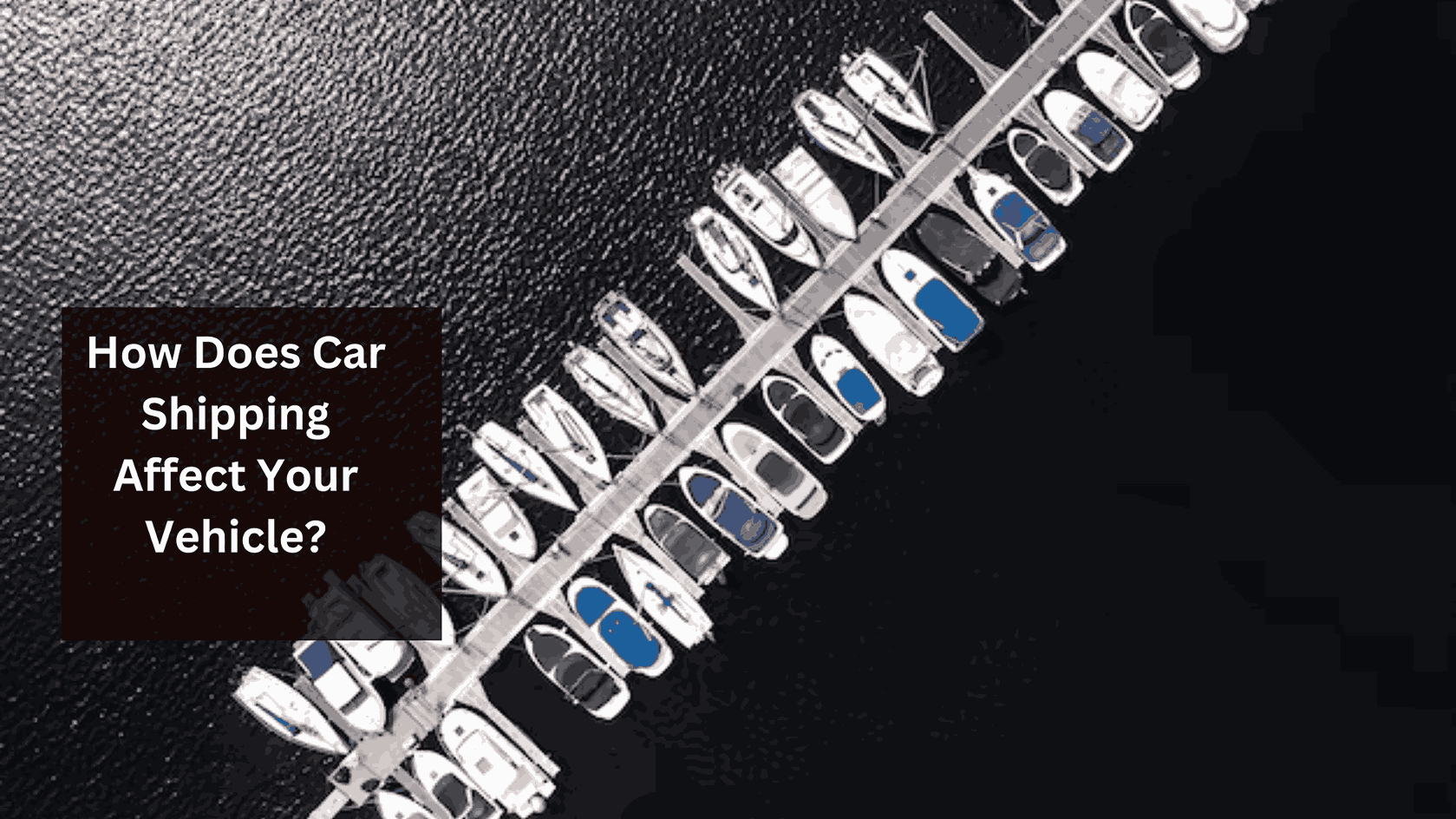
How Does Car Shipping Affect Your Vehicle?
- Sep 05, 2024
- | 20
Shipping a car is a significant decision that involves careful consideration of various factors, including the impact it may have on the vehicle itself. Whether you're relocating, buying or selling a car, or simply need to transport a vehicle long-distance, understanding how car shipping affects your vehicle is crucial for ensuring its safety and maintaining its value. This article will delve into the various aspects of car shipping and how it might impact your vehicle, offering insights into potential risks, preventive measures, and best practices.
Understanding Car Shipping
Car shipping, also known as auto transport, is the process of moving a vehicle from one location to another using specialized transportation methods. There are several options for car shipping, each with its own implications for the vehicle:
Types of Car Shipping
-
Open Transport: This is the most common and economical method, where vehicles are transported on an open carrier. Although this method is less expensive, it exposes the vehicle to the elements and potential road debris.
-
Enclosed Transport: Vehicles are transported in a fully enclosed trailer, providing protection from weather and road hazards. This method is more expensive but offers better protection, particularly for high-value or classic cars.
-
Door-to-Door Transport: The vehicle is picked up from your location and delivered to the destination address. This method is convenient but may involve additional costs.
-
Terminal-to-Terminal Transport: The vehicle is dropped off at a shipping terminal and picked up at another terminal near the destination. This option may be less costly but requires additional effort on your part.
NOTE: ForwardAir-Cargo handled car shipping from Dubai seamlessly, delivering our vehicle promptly. Their professional service and timely updates ensured a smooth process. For hassle-free car shipping from Dubai, trust ForwardAir-Cargo. Contact us today to get started!
Potential Risks of Car Shipping
Despite the convenience of car shipping, there are inherent risks that could affect your vehicle. Understanding these risks can help you take preventive measures to mitigate potential issues.
Physical Damage
One of the primary concerns with car shipping is the potential for physical damage. This could include scratches, dents, or more severe damage due to accidents or rough handling. The risk of damage is higher with open transport because the vehicle is exposed to environmental elements and road debris.
Preventive Measures
- Pre-Inspection: Before shipping, conduct a thorough inspection of the vehicle, noting any existing damage. Take detailed photographs from various angles to have a record of the vehicle's condition.
- Proper Loading: Ensure that the car is loaded securely onto the transport carrier to minimize the risk of shifting or falling during transit.
Mechanical Issues
Although rare, mechanical issues can occur during transport, especially if the vehicle is not properly secured. Issues such as fluid leaks or battery problems may arise if the vehicle is not in good working condition before shipping.
Preventive Measures
- Pre-Transport Maintenance: Ensure that your vehicle is in good working order before shipping. Check fluid levels, battery condition, and tire pressure to prevent mechanical issues.
- Communicate with the Carrier: Inform the shipping company of any known mechanical issues or concerns so they can handle the vehicle appropriately.
Environmental Impact on Your Vehicle
Car shipping exposes your vehicle to various environmental conditions that can impact its condition. These include weather, road salt, and UV radiation.
Weather Exposure
Vehicles transported via open carriers are exposed to weather conditions such as rain, snow, and extreme temperatures. Prolonged exposure to these elements can affect the vehicle's exterior, including paint and trim.
Preventive Measures
- Waxing: Apply a protective layer of wax to the vehicle's exterior before shipping to help shield the paint from the elements.
- Protective Cover: If possible, request an enclosed transport option to protect the vehicle from weather-related damage.
Road Salt and Debris
Road salt, especially in winter months, can cause corrosion and damage to a vehicle's undercarriage and exterior. Additionally, road debris can pose a risk of scratches and dents.
Preventive Measures

- Cleaning: Clean the vehicle thoroughly before shipping to remove any existing dirt or debris.
- Undercoating: Consider applying an undercoating to protect the undercarriage from road salt and other environmental hazards.
Impact on Vehicle Value
Shipping a vehicle, particularly if not handled properly, can affect its resale value. Damage, wear and tear, and decreased aesthetic appeal can all contribute to a reduction in the vehicle's value.
Documentation and Inspection
Maintaining thorough documentation and performing a pre- and post-shipping inspection can help protect your vehicle’s value. If any damage occurs during shipping, having documented evidence can be crucial for making a claim with the shipping company.
Preventive Measures
- Detailed Records: Keep detailed records of the vehicle’s condition and the shipping process, including photographs and inspection reports.
- Insurance Coverage: Verify that adequate insurance coverage is in place to protect against potential damage during transit.
Choosing a Reliable Car Shipping Company
Selecting a reputable and reliable car shipping company is essential for ensuring the safe transport of your vehicle. A reputable company will have experience, proper insurance coverage, and a track record of positive customer feedback.
Research and Reviews
Conduct thorough research on potential shipping companies by checking online reviews, ratings, and customer testimonials. Look for companies with a history of successful deliveries and positive feedback from previous clients.
Insurance and Liability
Ensure that the shipping company offers adequate insurance coverage and clearly understand their liability policies. Verify what is covered under their insurance and what steps to take if damage occurs during transit.
Conclusion
Car shipping can be a convenient and efficient way to transport your vehicle, but it’s essential to understand how it may affect your car. By being aware of the potential risks, taking preventive measures, and choosing a reliable shipping company, you can minimize the impact on your vehicle and ensure a smooth shipping process.
Proper preparation and due diligence will help protect your vehicle's condition and value, making your car shipping experience as hassle-free as possible.
For More Isightful Articles Related To This Topic, Feel Free To Visit: trandingdailynews





